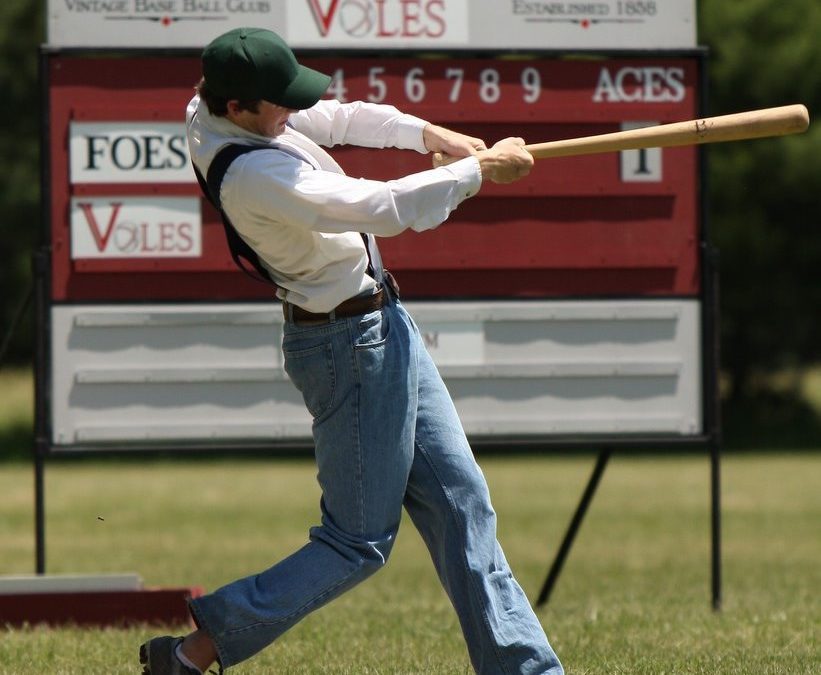Whenever I came off the field after a day playing vintage baseball, my hands were often stinging something fierce. That’s because we played by 1860 rules, which meant NO GLOVES. And since I played third base for the Danville Voles, I sometimes had to field a sharp line drive without the benefit of padding on the hands.
I drew upon my two years of playing vintage baseball when I wrote a brief scene in The Lincoln League in which John Scobell plays baseball in the spring of 1862. After all, I knew a bit about baseball at that time because when I played vintage baseball with my youngest son several years back, we played by 1860 rules. Here are just some of the differences with modern baseball:
–The ball is pitched underhand and there are no balls or strikes. You can wait for your pitch.
–If a fielder catches the ball on one hop, you are out. The fielder does not have to catch it on a fly.
–First, second, and third basemen have to position themselves a couple of feet from their respective bases and cannot move until the ball is struck. The one exception is the rover, who can play in the shortstop position for right-handed hitters and between first and second for left-handed hitters.
–There is no stealing or sliding.
–Batters are called “strikers,” and runs are called “aces.” And when you score a run, you must ring a bell.
–You can be fined a nickel for spitting.
Many players in our league had authentic uniforms tailor-made, while others (like myself) simply wore long pants with suspenders and long-sleeved shirts. This could be brutal on 90-degree days with high humidity, although players could ask the female spectators if it would be acceptable to roll up their sleeves. We didn’t want to shock the ladies by displaying bare forearms. The spectators, some of whom came in period costumes, are known as “cranks.”
I probably would still be playing vintage baseball, but the drive to Danville was pretty long–and it was difficult to play both vintage baseball and church-league softball.
Besides, church-league softball did have one big advantage. We could use gloves. Huzzah!
By Doug Peterson
Buy The Lincoln League.

